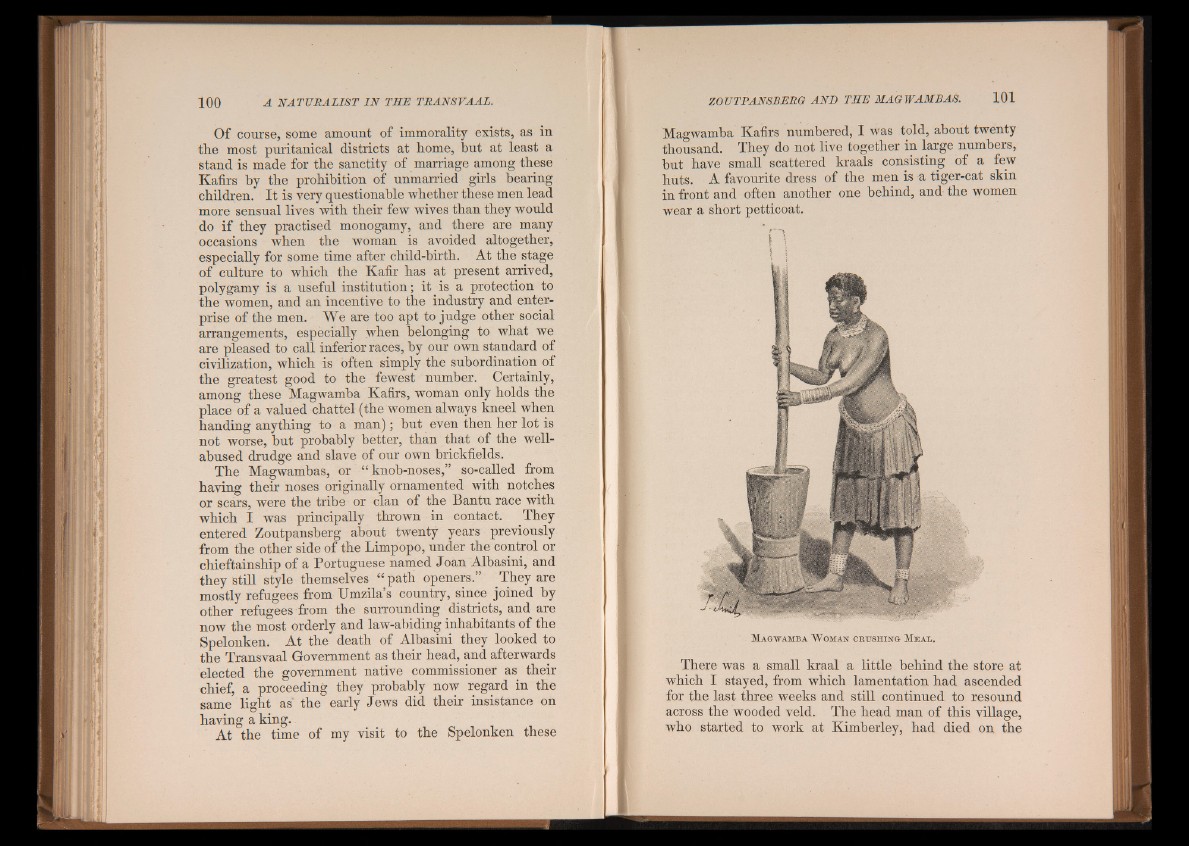
Of course, some amount of immorality exists, as in
the most puritanical districts at home, but at least a
stand is made for the sanctity of marriage among these
Kafirs by the prohibition of unmarried girls bearing
children. It is very questionable whether these men lead
more sensual lives with their few wives than they would
do if they practised monogamy, and there are many
occasions when the woman is avoided altogether,
especially for some time after child-birth. At the stage
of culture to which the Kafir has at present arrived,
polygamy is a useful institution; it is a protection to
the women, and an incentive to the industry and enterprise
of the men. We are too apt to judge other social
arrangements, especially when belonging to what we
are pleased to call inferior races, by our own standard of
civilization, which is often simply the subordination of
the greatest good to the fewest number. Certainly,
among these Magwamba Kafirs, woman only holds the
place of a valued chattel (the women always kneel when
handing anything to a man) ; but even then her lot is
not worse, but probably better, than that of the well-
abused drudge and slave of our own brickfields.
The Magwambas, or “ knob-noses,” so-called from
having their noses originally ornamented with notches
or scars, were the tribe or clan of the Bantu race with
which I was principally thrown in contact. They
entered Zoutpansberg about twenty years previously
from the other side of the Limpopo, under the control or
chieftainship of a Portuguese named Joan Albasini, and
they still style themselves “ path openers.” They are
mostly refugees from Umzila’s country, since joined by
other refugees from the surrounding districts, and are
now the most orderly and law-abiding inhabitants of the
Spelonken. At the death of Albasini they looked to
the Transvaal Government as their head, and afterwards
elected the government native commissioner as their
chief, a proceeding they probably now regard in the
same light as' the early Jews did their insistance on
having a king.
At the time of my visit to the Spelonken these
Magwamba Kafirs numbered, I was told, about twenty
thousand. They do not live together in large numbers,
but have small scattered kraals consisting of a few
huts. A favourite dress of the men is a tiger-cat skin
in front and often another one behind, and the women
wear a short petticoat.
Magwamba W oman crushing Me a l .
There was a small kraal a little behind the store at
which I stayed, from which lamentation had ascended
for the last three weeks and still continued to resound
across the wooded veld. The head man of this village,
who started to work at Kimberley, had died on the